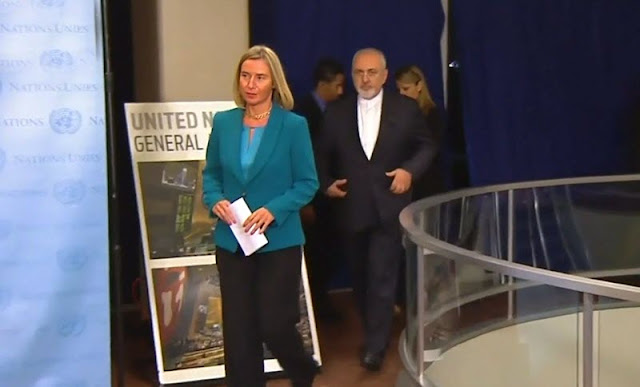By Amir Taghati
In an interview with state run official news agency on January 5th, the Iranian regime’s foreign ministry’s spokesperson, Bahram Qassemi discussed the European Special Purpose Vehicle. “At the beginning, the European Union had good intentions and a positive political will about creating the financial mechanism, but gradually and during the negotiations over the past few months, this feeling became more serious that the European countries face some serious disabilities in implementing the SPV,” he said.

His remarks have drawn criticism from the faction affiliated with Ali Khamenei. For example, an Iranian newspaper allied with the Supreme Leader, Vatan-e Emrouz, wrote, “[Bahram Qassemi] considered U.S. dollar’s hegemony and the ties between European and American economies among the major reasons why the SPV implementation is delayed and added: ‘The European Union and even the three European countries that are part of the JCPOA with Iran, are prisoners and hostages to the U.S. economy. Therefore, they have to make a decision for their independence and the continuation of their independent existence.”
Vatan-e Emrouz also published the article, “2019/2020 budget gamble with SPV?!”, that challenged Iranian President Hassan Rouhani’s budget on its 1.5-million-barrel-per-day oil-export estimation. The article explains that this estimate relies on the SPV and European imports of Iranian oil, but European support isn’t guaranteed.
Regime’s MP Nasrollah Pejmanfar, told Vatan-e Emrouz newspaper, “The important issue is that the government can’t rely on the SPV at all for selling 1.5 million barrels of oil as it’s evident in the 2019/2020 budget bill. Because neither the solution is clear nor there is transparency about it.” Pejmanfar also said that oil is currently being sold “seven to ten dollars” below market price.
As well, Sharq newspaper published an article on January 7th, entitled, “What should be done with the JCPOA?” It disparaged the SPV efforts, saying, “It’s likely that Europe will soon somehow create its promised financial mechanism, although it will be completely symbolic, useless, and ineffective,” and added, “This inefficiency is mostly rooted in Europe’s weak economy compared to the U.S. and also the legal structures of European markets, and not a desire by European governments to break their commitments.”
After the U.S. exit from the JCPOA was announced in May 2018, Javad Zarif went to Brussels to seek help and support from the EU. Despite promises, nothing concrete has materialized.
Zarif’s political deputy, Abbas Araghchi, has said, “We face a situation where Europeans either don’t want or can’t implement the financial mechanism. In some circles, it is said that the differences between Europe and the U.S. are just a game and they don’t have differences in reality. And we can’t dismiss this line of reasoning easily and we must consider it alongside other possibilities.”
“You can say that this issue [FATF] has become sort of an excuse for the Europeans to delay the financial mechanism. If we want to do any amendments to this [FATF bills] and tell them that, it’s better to do it as soon as possible, so that they don’t have this excuse anymore and we can put more pressure on them to implement the mechanism,” states Abdolreza Faraji, the president of the Strategic Council for Iran’s Foreign Affairs.
According to sources, the EU conditioned implementation of the SPV to Iran’s compliance with the world’s money laundering body, FATF. But, passing the four related bills necessary to do that has become one of the most controversial topics in Iran over the last several months. The laws that the Iranian regime must pass to bring it in line with international anti-money laundering and terrorism financing standards, will prevent it from supporting its many proxies in the region and around the world. This is unacceptable to the Islamic Republic.
source: ncr-iran




Comments
Post a Comment